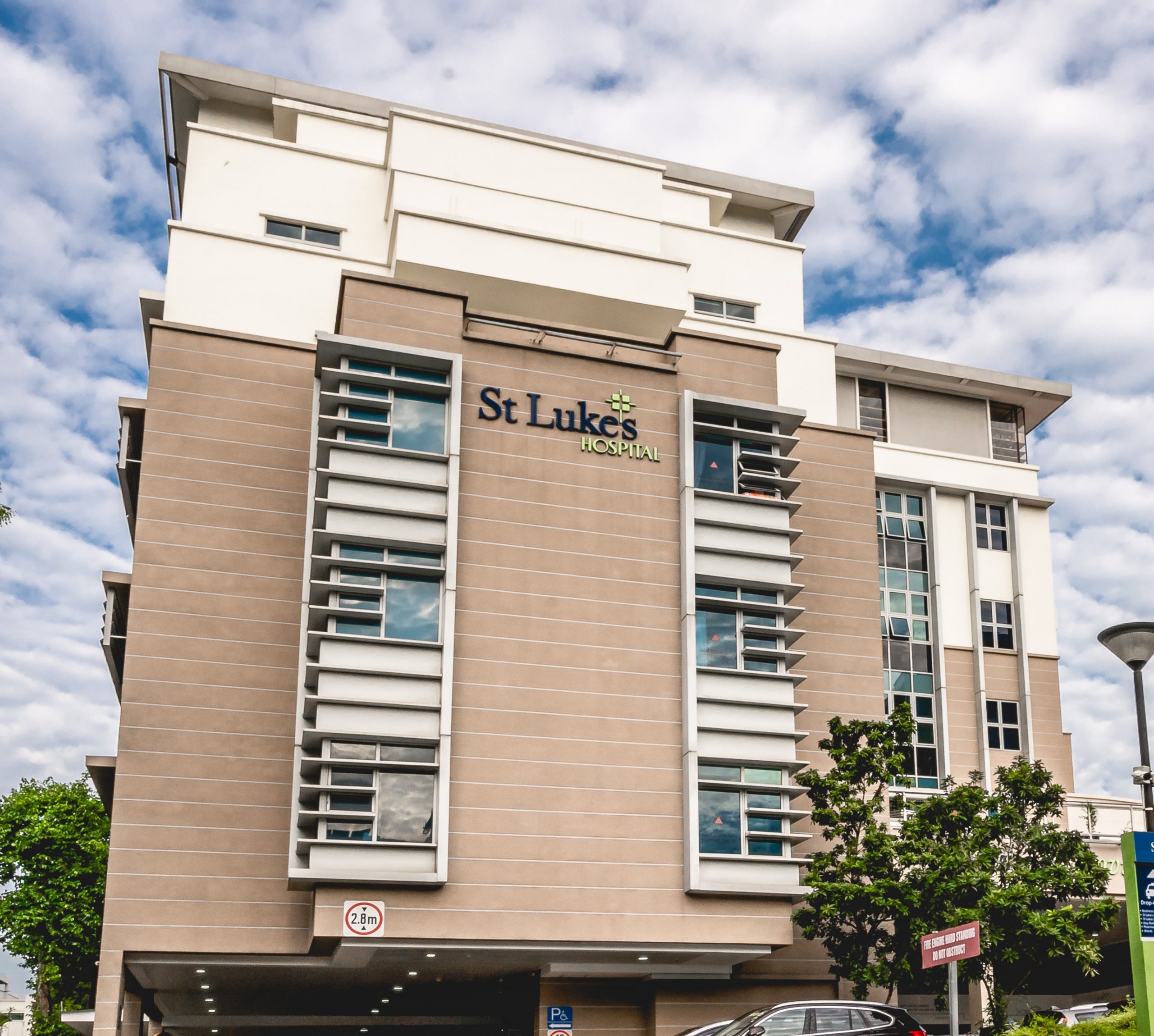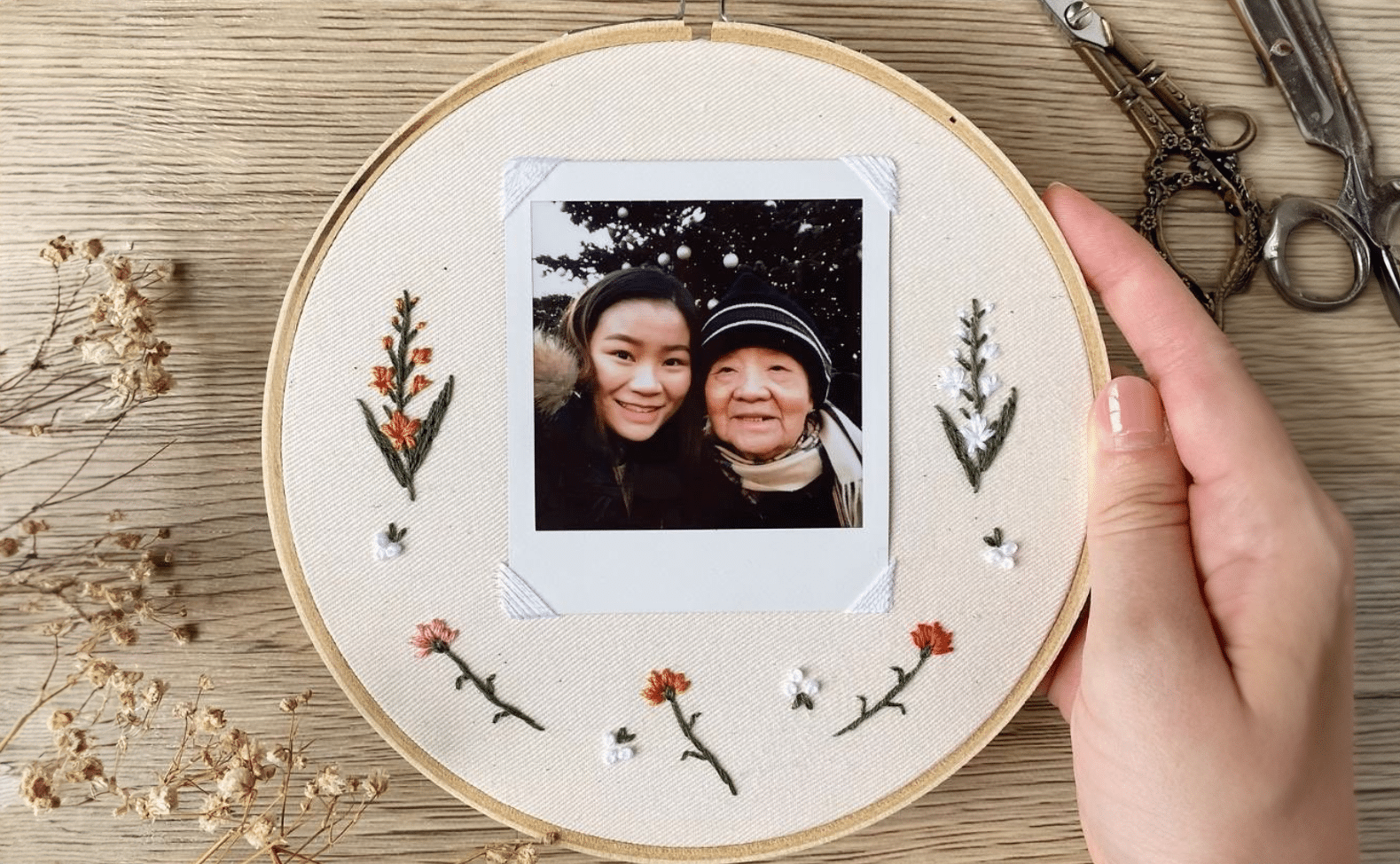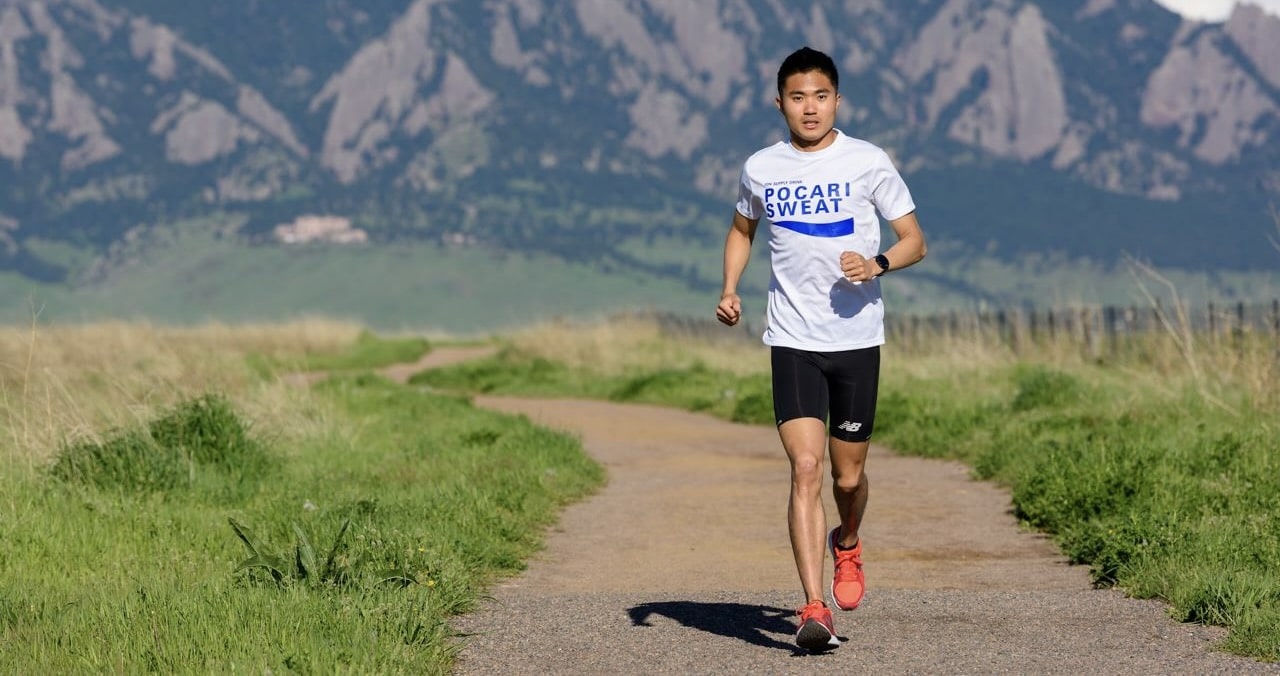“If anyone does anything differently because of your influence, you are a leader”: Dr Tan Poh Kiang, who ran 200km to lead by example
St Luke's Hospital // August 3, 2021, 6:05 pm
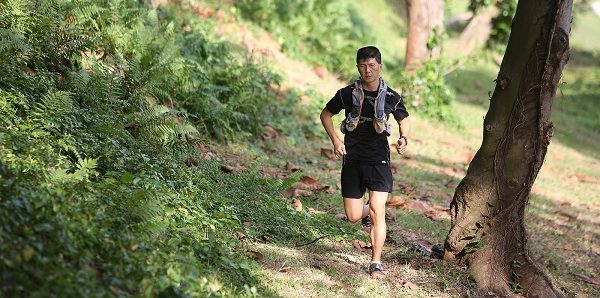
“Some leaders I have worked with may not look the part," says Dr Tan Poh Kiang. "But they make people follow them willingly and joyfully, and together achieve extraordinary results as a team." All photos courtesy of Dr Tan Poh Kiang.
When Dr Tan Poh Kiang was growing up, his parents put him under the care of his grandmother.
Once, she left him and his four cousins home alone for half a day to play mahjong. As the eldest, he stepped up to take care of them, ensuring they were well-fed and clean after getting sweaty from a few hours of play. His cousins were one to four years old at that time. Dr Tan was just five.
That was his first taste of leadership.
Growing up, his family often struggled to make ends meet. Despite the odds, he went on to study medicine.
To the surprise of many, his goal was vastly different from that of his peers. He aspired to be a general practitioner (GP) in the heartlands, where he could work and serve the community.
After working as a GP in Bukit Ho Swee for more than 20 years, Dr Tan went on to lead Singapore’s largest home hospice care provider, HCA Hospice Care (HCA), which supports terminally-ill patients at the end of their lives.
During the course of his five-year tenure as President of HCA, Dr Tan famously ran marathons to race funds for the charity. In 2019, he ran a gruelling 200km in 45 hours, raising more than $440,000 for HCA, before stepping down as its president.

Dr Tan and family celebrating the end of his 100km run in 2014, in which he raised $152,000 for charity.
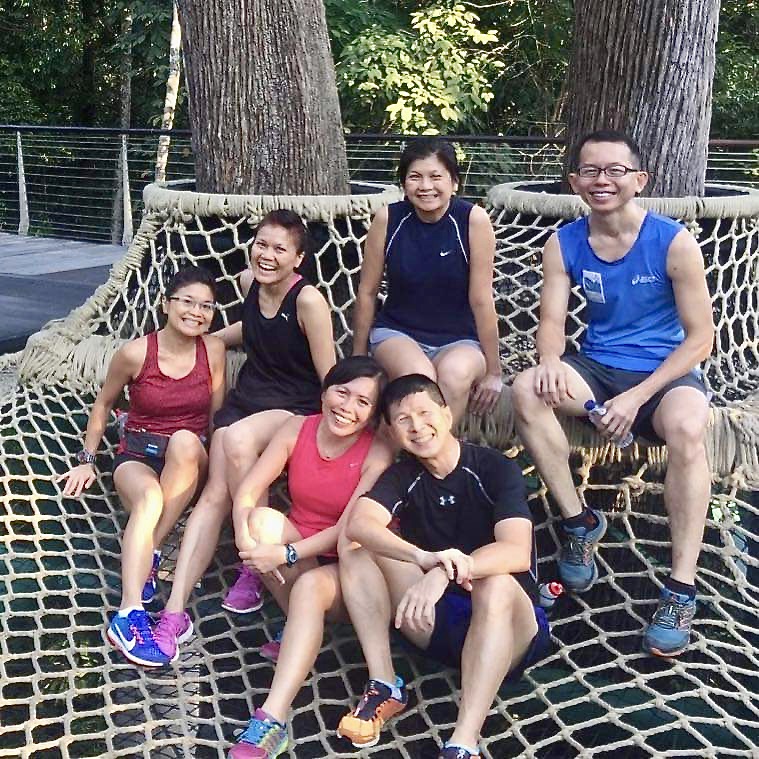
With his running group that includes his wife, Joan (in pink), and her late brother, Ching Sim Lie (wearing spectacles).
He was making the point that fund-raising is everyone’s responsibility, not just that of the fundraising committee. And his way of making the point?
Leading by example.
“I cannot just use clever words. I have to show it, right?” he quipped in a previous interview with Salt&Light.
Dr Tan, now 55, continues to serve the community as a GP in a clinic in Beo Crescent. He is also the chairman of the Medifund committee of Jurong Health (Ng Teng Fong General Hospital). The endowment fund, set up by the Government, provides a safety net for patients who face financial difficulties.
Appetite for learning
The first-born son (长子嫡孙) in his family sees himself a born leader as defined in Chinese culture. Yet he is quick to attribute his growth to mentors and other leaders in his life who had a positive effect on him.
One was Lieutenant-Colonel (LTC) Ng Seng Chan, who was his boss in the army when Dr Tan was serving as an SAF medical officer after doing his housemanship.
“He was a gruff and no-nonsense soldier who walked his talk.
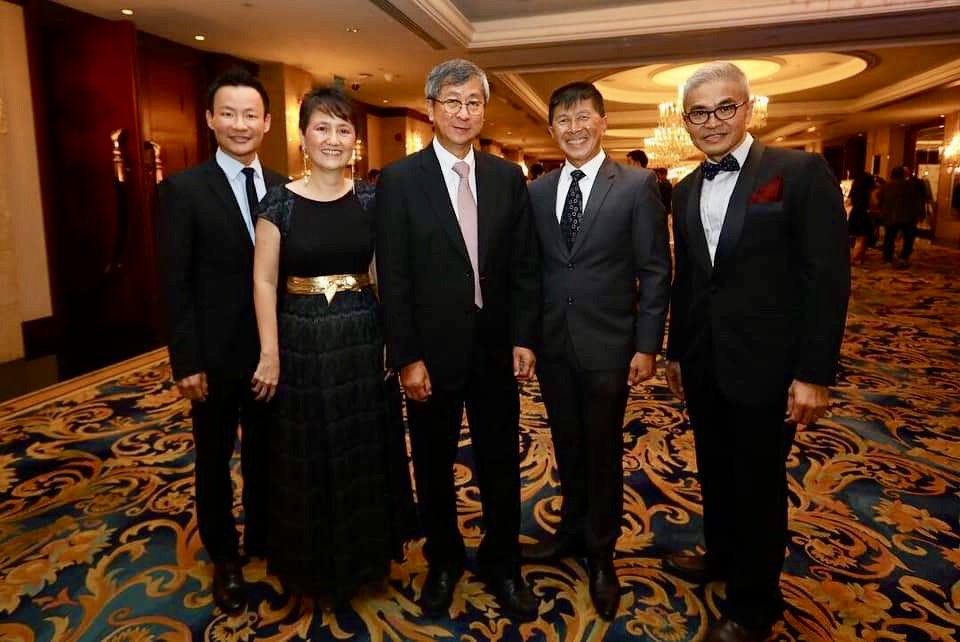
Dr Tan (second from right) with HCA leaders he served alongside.
“He taught me that it was hypocrisy if, as a Christian (he was a Methodist), I did not say what I meant and did not mean what I said. He insisted that every soldier under my command was precious and I was to constantly ‘walk the ground’ to sense their well-being.”
“It was hypocrisy if as a Christian, I did not say what I meant and did not mean what I said.”
Another big influence was Dr John Ng, now honorary chair of the Board of Governance, Eagles Communications. They were church mates at Pentecost Methodist Church.
“He broadened my horizons and pushed me to drink from every stream of leadership influence – even overseas.
“Inspired by John’s insatiable appetite for learning, I began to invest in overseas leadership training conferences, leadership books and magazines.
“He taught me that the people whom I lead deserve a humble leader who is constantly learning.”
Dr Tan subscribes to the notion of nature and nurture, believing that leaders are both born and made.
“In the Bible, God raised leaders from various circles and professions in different seasons,” he said. They include natural-born leaders and others who gradually stepped into leadership positions.
Leadership is a relationship between “those who aspire to lead and those who choose to follow”.
Led by lions
“Some leaders I have worked with may not look the part. They may not be eloquent, commanding, tall or authoritative, but they lead fantastically. They make people follow them willingly and joyfully, and together achieve extraordinary results as a team,” said Dr Tan.
“Authentic and effective influence do not come in any stereotypes,” he said, citing a driver in the army who was heavily tattooed and spoke only Hokkien.
“If you are a potential role model for someone, wouldn’t you want to be the best person you can be?”
“He was a private (one of the lowest ranked soldiers). But during canteen break interactions, I noticed that all the other drivers would listen to and follow whatever he asked of them instead of their transport sergeant!” said Dr Tan who was a Battalion Commanding Officer (CO) at that time.
“I decided to rope him in as unofficial deputy to the transport sergeant for a battalion field exercise, which was part of an evaluation.
“We were blessed with a good – though unlikely – leader who united the team of drivers.”
On the other hand, dormant leaders may require some inspiration and motivation to unlock their full potential.
“I’m more afraid of an army of one hundred sheep led by a lion than an army of one hundred lions led by a sheep,” he said, citing Charles-Maurice de Talleyrand-Perigord, a French clergyman and diplomat from the 1700s to 1800s.
Not position nor power
Leadership is not only found at the highest level of an establishment, said Dr Tan.
He believes that it is something that can be caught and nurtured by those not in formal leadership positions.
Leading as a servant may sound paradoxical, but it means leading by example.
Referring to leadership by influence rather than leadership by authority, Dr Tan believes that this can be exhibited at any age, and is not tied to one’s position, authority, or power.
He issued this challenge: “If you are a potential role model for someone, wouldn’t you want to be the best person you can be?”
“If anyone around you does anything differently because of your influence on them, you are already a leader!”
Dr Tan referred to Matthew 23:11 for the secret ingredient of true, authentic leadership: “The greatest among you will be your servant”, that is, serving others rather than seeking to be served.
Leading as a servant may sound paradoxical, but it means leading by example, he said. “And not doing anything that we ourselves would not want to do.”
Walking the talk
“What does it take for you to be the kind of person that others want to follow, enthusiastically and voluntarily?” asked Dr Tan.
“Credibility serves as the foundation of leadership,” he said.
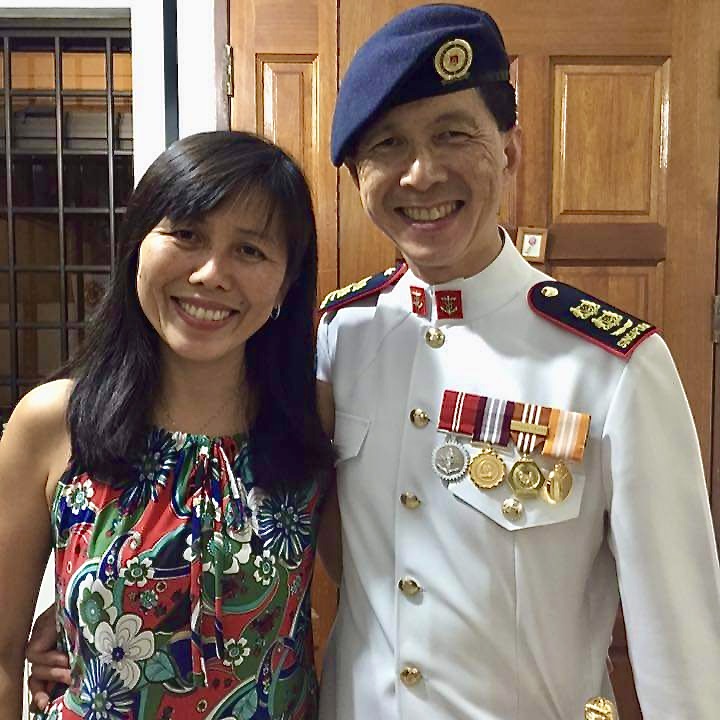
During his national service in the early 1990s, Dr Tan served as medical officer. He was a Commanding Officer of a battalion for 12 years during the period of his reservist training.
“If people don’t believe the messenger, they won’t believe the message,” he said, referring to the first law of leadership from Everyday People, Extraordinary Leadership: How to Make a Difference Regardless of Your Title, Role or Authority by Barry Z Posner and James M Kouzes.
“Credibility serves as the foundation of leadership.”
A head who leads by example helps build credibility and trust when they walk their talk.
“When a leader is trustworthy, people are likely to be more convicted and dedicated in the giving of their time, energy and support to the vision or cause,” he said.
From history, we can observe the pattern that a leader is someone who challenges suppositions which then lead to a shift in behaviours and processes, he said.
“They are critical in inspiring a shared vision, and model the way to lead their team towards the common goal. They speak to the hearts, not merely the heads of their followers.”
This is the second article in a series of Leadership Conversations by St Luke’s Hospital (SLH) and is republished in a collaboration between SLH and Salt&Light.
Check back soon for perspectives from other leaders who were invited to inspire SLH staff in their personal and professional development.
RELATED STORIES:
Running 200km in 45 hours: Hospice president Dr Tan Poh Kiang says, it is “God’s path for me”
We are an independent, non-profit organisation that relies on the generosity of our readers, such as yourself, to continue serving the kingdom. Every dollar donated goes directly back into our editorial coverage.
Would you consider partnering with us in our kingdom work by supporting us financially, either as a one-off donation, or a recurring pledge?
Support Salt&Light